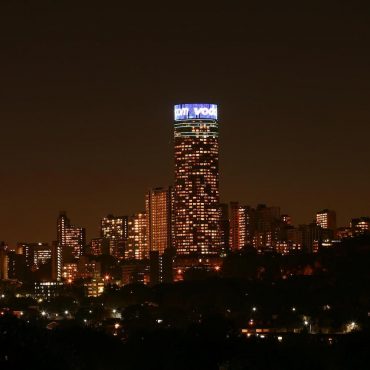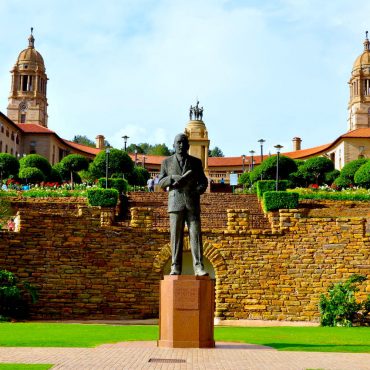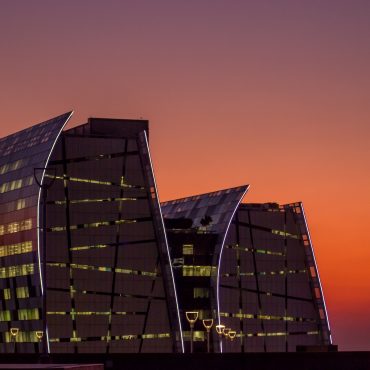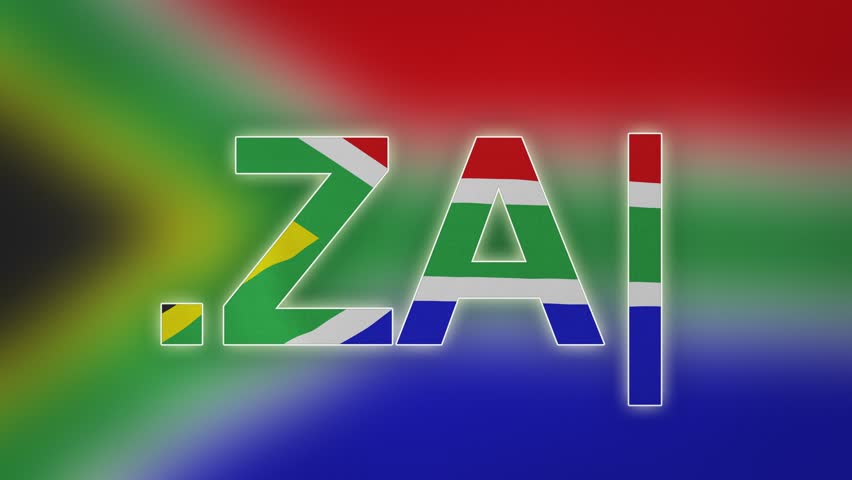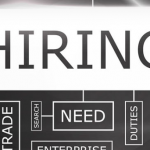Uncensured New Yorker Cost Of living In South Africa Comparison
![]() Many people believe that South Africa is a cheap country to live in. But is it? Next, you will find out the cost of living in South Africa compared to New York.
Many people believe that South Africa is a cheap country to live in. But is it? Next, you will find out the cost of living in South Africa compared to New York.
I didn’t understand much about the nation of South Africa but if I was to move my life to another country, I wanted to know as much as I could.
Without a doubt, one of the first stress a person brings through when moving abroad is fretting about the unknown.
What my expenses would be like, how it read to my fee in New York, and how it compared to the salary I was getting paid in the US?
NYC is one of the most exorbitant places in the world and South Africa can’t compare that cost of living. It’s been almost a half a term since I’ve lived here now!
I’ve settled into my new life and have the cost of living figured out. This post is all part of my Ultimate guide to living in Johannesburg.
South Africa has a lofty pace of inflation and these prices are from 2019.
Note that this is my cost of living and might be different for others. South Africa, has a GDP Per Capita as of 2019 of around 6001$ per year.
This is significantly poorer than the first planet nations. It is considerably better than the rest of Africa though. Except for Seychelles.
Sandton, the rich environs of Johannesburg, is the wealthiest area in all South Africa. It is the place that I’ve lived at for almost half a year. I’ve deduced how ridiculous the income standard deviation of this country is.
Sandton is an incredible develop place and nicer than most parts of America if put to the test. The GDP Per Capita of Sandton is 10x better than the rest of the country.
Residing in Sandton is not as competitive as I thought it would be. It is not expensive either. If you’re planning on moving to Sandton, realize that you’ll be living in the wealthiest area of the country. People here do not live remotely resembling the country’s GDP.
Taxes in SA are the same as the US with a tiered tax structure. The true tariff bracket is 40% and this starts at something like 620k per year. Yet, only earnings above 620k are taxed at that rate. Everything below that is seized at its particular level.
I’m not an expert on taxes but I see how my paycheck diminishes from taxes and getting owned by the government.
What I’ve learned about SA is that because of the large income disparity, only about 10% of the population pay taxes. That makes up for the other 90% of the population.
It’s always a topic of discomfort but after living here for a while, I can see it being true. South Africa has risen the taxes and has introduced a latest lofty end bracket for those earning more than 1.5 million Rand a year of 45%.
Here is a separation of my monthly expenses. Note that this is only helpful for someone in a similar position to me. In other words, you’re not married, do not have any dependents, and living the bachelor’s life.
 Rent – 13000 Rand average
Rent – 13000 Rand average
Without a doubt, it is any Yorker’s hefty expense. I am living in New York and it would not be uncommon to see someone spend 50% of their take-home pay on rent!
Letting an apartment is cheap compared to New York, but not as cheap as you’d think.
If you’re inclined to live OUTSIDE the main place area, like Fourways and Sunninghill, it is cheaper.
You’ll be quite shocked at how exorbitant a two-bedroom apartment is in Sandton.
Sandton is far from a full urban center, but it is on a convenient spot. This makes it one of the favorite areas for expats to live in.
It’s like moving to New York for the first time and living in Queens. A lot of people do this because it’s so expensive, and nothing against Queens, but it’s no Manhattan.
Many expats don’t have any possessions and furnished apartments are in high demand and do not come cheap.
One bedroom in the Sandton/Morningside/Rosebank place cost something around 12000 Rand. This won’t get you anything fantastic. It is above a reasonable apartment.
If you need something with style, add another 3000 Rand onto that cost tag. A two-bedroom apartment adapts significantly better in comparison to the one beds. This is helpful if you find a roommate. I’m fortunate enough to be one of those people and the apartment I have now, in the Sandhurst Towers, is amazing.
Certainly something I would never be capable to live in New York. At 10000 Rand (20k split two ways) a month, most South Africans would never want to pay this. It was a figure I had never thought I would spend, but a little bit of the good life never hurt anybody.
Automobile and Car Insurance – 3000 Rand+750 Rand
A car is an utter necessity in this city. After buying my first car ever, I actually started to enjoy driving.
Even so, it’s been a few months now and the novelty has worn off, but the car payments have not. With a car imposing 150000 Rand, my payments come out to something around 2400 Rand a month. Besides, car insurance is a necessity in this country. Traffic keeps get hectic and people can drive beautiful crazy.
Getting my insurance through Hollard, I pay 630 Rand a month. This is quite reasonable, especially for an expat. After residing here for a few months, I see that folks here are much more car-obsessed than people back home.
People would spend the majority of their paycheck on their cars instead of their accommodations.
![]() Gas is as about as inelastic of a commodity here like water. No matter how much you have to drive, you have to imbibe it up and pay the costs; there are no alternatives.
Gas is as about as inelastic of a commodity here like water. No matter how much you have to drive, you have to imbibe it up and pay the costs; there are no alternatives.
A full tank on my diesel car costs me about 700 -750 Rand. Residing in Sandton has its perks and my commute to work is about a 10km round trip. The fact that I don’t drive much in general, I fill up my car every six weeks or so.
People are shocked when I tell them this as people drive around so much and fill up their cars every week. Sometimes I awe how a person in this country affords gas if the GDP Per Capita is somewhere around 6000$.
Gym – 1000 Rand
Without a doubt, something a man cannot live without. This was one of
the first stress I wished out upon moving and am joyful to be gymming where I am.
At 800 Rand a month for Planet Fitness Platinum, this is exorbitant but this is one of the top gyms in the city so a premium is expected.
Less ornate gyms cost much less. There are more expensive ones like Virgin Active Alice Lane. It costs something like 1600 Rand per month!
I’ve actually been to both groups now and they are definitely on par with each other.
Cellphone – 100 Rand
Without a doubt, one of my insolent profit savings moments. I’ve figured out how to live in a deal dominated by exorbitant cell phone prices and plans.
Acquiring an unlocked cellphone from the US before coming here, I’ve repaid much lower for the phone itself than I would have here.
I do not call anyone and have wifi at home, work, and the gym. Thus, I signed a contract for 500mb a month for 39 Rand per month with Vodacom. Append another R30 for talking and that’s about all I need for a month.
People here pay over 1000 Rand a month which is ridiculous.
Electricity – 500 Rand
Because our electricity is pre-paid, I have a meter right next to my door telling me how much electricity I have. I’m now so much more conscious about using power than before where I would get a bill of surprises at the end of the month.
 Wifi-TV – 600 Rand
Wifi-TV – 600 Rand
My TV programming is actually involved in the rent price of my apartment but I will be honest, the TV here is not good. It’s recycled waste American TV shows no one cares about. Movies from ten years ago, and a few random South Africa channels.
Not that I scrutinised much TV back home, I wish I’d have ESPN in this part of the world :(.
The Internet is a mission to leave up. It’s an exigency for most people and for me too. It cost me about a month to get it all squared away.
With Afrihost, I’ve managed to get a deal for fast speed internet around 900 Rand a month. Exorbitant for any develop world standards, especially since we only have 10mbps, but that is how it is here.
Food/Entertainment
Anyone that’s lived in current New York would agree with me that a large piece of one’s salary goes to these two things. It’s actually quite troubling if you pull your payment card bill into excel and sum up all your nights at dinner bars.
It isn’t the rent, the activity bills, the transportation, or even take out meals for lunch and dinner. But rather the times you are out eating and drinking with friends.
Nighttime jolling easily add up to 100$ before you’ve ever felt like you’ve spent 20$.
Meal and alcohol are competitive in South Africa no doubt. Snack costs me on mediocre 30 Rand. A prompt snack and dinner in New York would cost me 15/20$. It’s not the casual meals that killed me in New York but rather going out to dinner at a proper restaurant and having drinks with friends.
This would cost me 100$ a night. The strong social culture in New York, and the fact that it’s easy to go anywhere without worrying about drinking and driving, these nights are quite often.
In the span of about four months, I’ve managed to hit up almost all the excellent restaurants in Joburg. A very good meal with alcohol cost 400 Rand.
There’s not a shortage of restaurants in this city, but it’s a far cry from my restaurant experience in New York. Yet, the delicacy is a substantial difference.
Because you should drive, you cannot go out and have wine to your heart’s desire and a cab out will be easily 200 Rand-300 Rand.
So what does this all mean? Lower midnight out will equal much less money spent. Nighttime in New York where you weren’t planning on going out, a friend’s text at 11 pm changes your mind, leading to 100$ expended that midnight for no reason.
This does not happen here. After executing the Joburg culinary scenery already, I have a small desire to go out for dinner.
Leaving out here is fun but again, it requires planning so various times I am intended to stay at home and not get pulled over by the cops.
I’d say my cooking and entertainment bill is somewhere around 5000 Rand a month. Quite high for most South African standards and obviously this can change with one big night out but it is still a fraction of what I spent before.
![]() Including It All Up
Including It All Up
Rent – 10000 Rand
Car – 2300 Rand
Insurance – 750 Rand
Gas – 700 Rand
Gym – 1000 Rand
Internet – 600 Rand
Cellphone – 100 Rand
Electricity – 500 Rand
Food/ amusement – 5000 Rand per month for all proper expenses.
There are extra things every month you end up repaying for. But this sums up the must-pay expenses of my life in South Africa so far.
So what concludes to the step of the money? The reality in SA is gorgeous happy as long as I sit my ass in this chair that I’m writing this blog post for the rest of my days.
But I have many places that I’d like to see in Africa and it isn’t cheap. As soon as you move traveling around Africa, you realize scarce things.
No Africans journey around Africa, and hence Africa is NOT a competitive place to travel around. It is all catered for Europeans, Americans, Australians all earning Euros, Pounds, and Dollars.
Most trips around Africa are quoted in USD or EURO and the exchange rate is currently not good. What do things cost? It is entirely relative to where you are.
Sandton, where I live controls the absolute premium for all things in South Africa. So here are some examples from Sandton. You can expect noticeable discounts if you go to another city like Durban or Pretoria.
Beer: 25-30 Rand a mug
Wine: 40-60 Rand a glass
Shot of non-top shelf liquor: 30-40 Rand
300g Fillet at a steakhouse: 150-200 Rand
Cinema Ticket: 75 Rand
Car ride from Sandton CBD to Rosebank: 150 Rand
Economy and banking
South Africa has a ludicrous increase rate hovering somewhere around 6% a year. Being a developing world country, with people being on strike more than they work, the country is seen as a riskier investment than others.
While American banking currently repays lower than 1% on a certificate of deposit. And pretty much nothing on a savings account, South Africa is the opposite.
Thrift accounts at banks regularly yield 4%!!! And if you’re not cash strapped, and can invest your money for a few years without having to touch it, there are bank CDs here paying almost 6+%!
![]() The worthy I’ve seen is a bank called African Bank that will pay you 9.5% on a five year CD! That is ridiculous. 9.5% is a lofty return than most public funds create over a year.
The worthy I’ve seen is a bank called African Bank that will pay you 9.5% on a five year CD! That is ridiculous. 9.5% is a lofty return than most public funds create over a year.
Capitec, another SA bank, is a narrow lesser with 8.5%, and the step all have CDs returning 6-7% per annum.
Also, these CDs all give you the option of taking the interest payment in cash, or reinvesting it to compound the interest!
That’s like a 50% return on that African Bank 5year CD over five years!
I guess this is the one definite expression of getting paid in Rand. A currency that’s depreciated almost 15% against the dollar since I moved to the country.
That is all folks, come on in and see for yourself.




